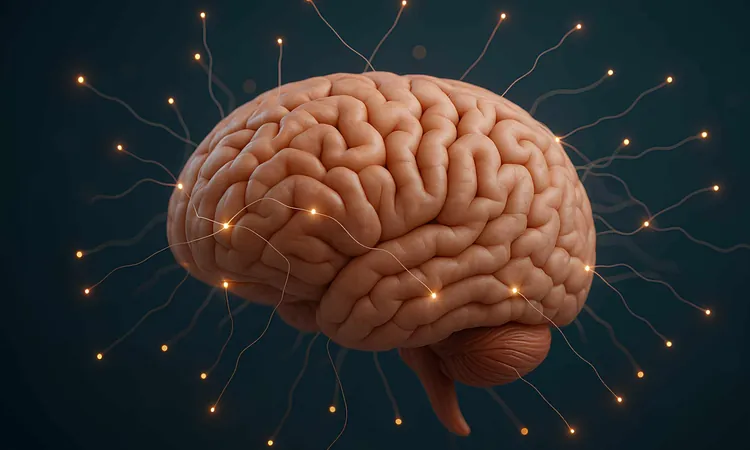
Sweet Science: Researchers Unlock the Brain's Memory Shield
2025-05-20
Author: Mei
The Sugary Secret to Brain Health
Aging often brings unexpected challenges, and researchers are revealing that some of these issues may be linked to sugar loss in the brain. A groundbreaking study has shed light on how the brain's protective sugar coating, known as the glycocalyx, diminishes with age, compromising its defenses.
The Blood-Brain Barrier Breakdown
Nobel laureate Carolyn Bertozzi from Stanford University is leading the charge in exploring the significance of this sugary shield. The glycocalyx serves as a crucial component of the blood-brain barrier, a structure designed to allow essential nutrients while blocking harmful substances. Unfortunately, studies in mice have shown that this protective layer becomes thinner over time, creating openings that invite dangerous molecules into the brain.
"We're stepping outside for the first time and trying to make sense of what's out there," Bertozzi remarked, highlighting the lack of attention sugar molecules have received compared to proteins.
Restoring the Sugar Layer for Memory Recovery
Concerns arise as even minor breaches in the barrier can lead to inflammation and cognitive decline. However, scientists discovered that reintroducing vital sugar components can help restore this lost protection. Lead researcher Sophia Shi noted, "Modulating glycans has a major effect on the brain—both negatively in aging, when these sugars are lost, and positively when they are restored."
By boosting sugar levels in older mice, researchers noticed improvements in the integrity of the blood-brain barrier and a decrease in harmful molecules, hinting at enhanced brain function.
Memory Gains from Sugar Revival
This innovative research lays the groundwork for a new field exploring how an aging brain loses its resilience. Tests showed that mice with replenished sugar layers performed significantly better on memory tasks, demonstrating that even small gains can make a major difference in combating cognitive decline.
Implications for Future Treatments
The blood-brain barrier often complicates drug development, acting as a gatekeeper while simultaneously posing risks of allowing harmful substances to enter. A thicker sugar layer could enhance the barrier’s performance, allowing nutrients to pass while keeping the brain safe.
These findings may alter how treatments are designed, particularly for conditions like Alzheimer's and neuroinflammation, by potentially addressing the sugar shield's failures to improve brain health.
A Sweet Future for Brain Research
Bertozzi and her team are now focused on determining which types of sugars have the most significant impact and how they interact with other protective molecules. While the effects on humans remain unclear, understanding sugar's role in maintaining barrier stability could lead to new therapeutic avenues.
Even younger individuals might benefit from insights into how sugars support the brain's immunity, enhancing recovery from injuries or infections.
Towards a Brighter Cognitive Future
As researchers continue exploring the glycocalyx, they are revealing how the aging brain maintains the delicate balance of allowing necessary substances while shielding itself from threats. With promising results in improving memory-related symptoms in mice, ongoing studies will determine the potential efficacy of these discoveries in human patients, especially those facing neurodegenerative challenges.
Published in the esteemed journal *Nature*, this research opens up exciting possibilities for harnessing the power of sugar in brain health.


 Brasil (PT)
Brasil (PT)
 Canada (EN)
Canada (EN)
 Chile (ES)
Chile (ES)
 Česko (CS)
Česko (CS)
 대한민국 (KO)
대한민국 (KO)
 España (ES)
España (ES)
 France (FR)
France (FR)
 Hong Kong (EN)
Hong Kong (EN)
 Italia (IT)
Italia (IT)
 日本 (JA)
日本 (JA)
 Magyarország (HU)
Magyarország (HU)
 Norge (NO)
Norge (NO)
 Polska (PL)
Polska (PL)
 Schweiz (DE)
Schweiz (DE)
 Singapore (EN)
Singapore (EN)
 Sverige (SV)
Sverige (SV)
 Suomi (FI)
Suomi (FI)
 Türkiye (TR)
Türkiye (TR)
 الإمارات العربية المتحدة (AR)
الإمارات العربية المتحدة (AR)